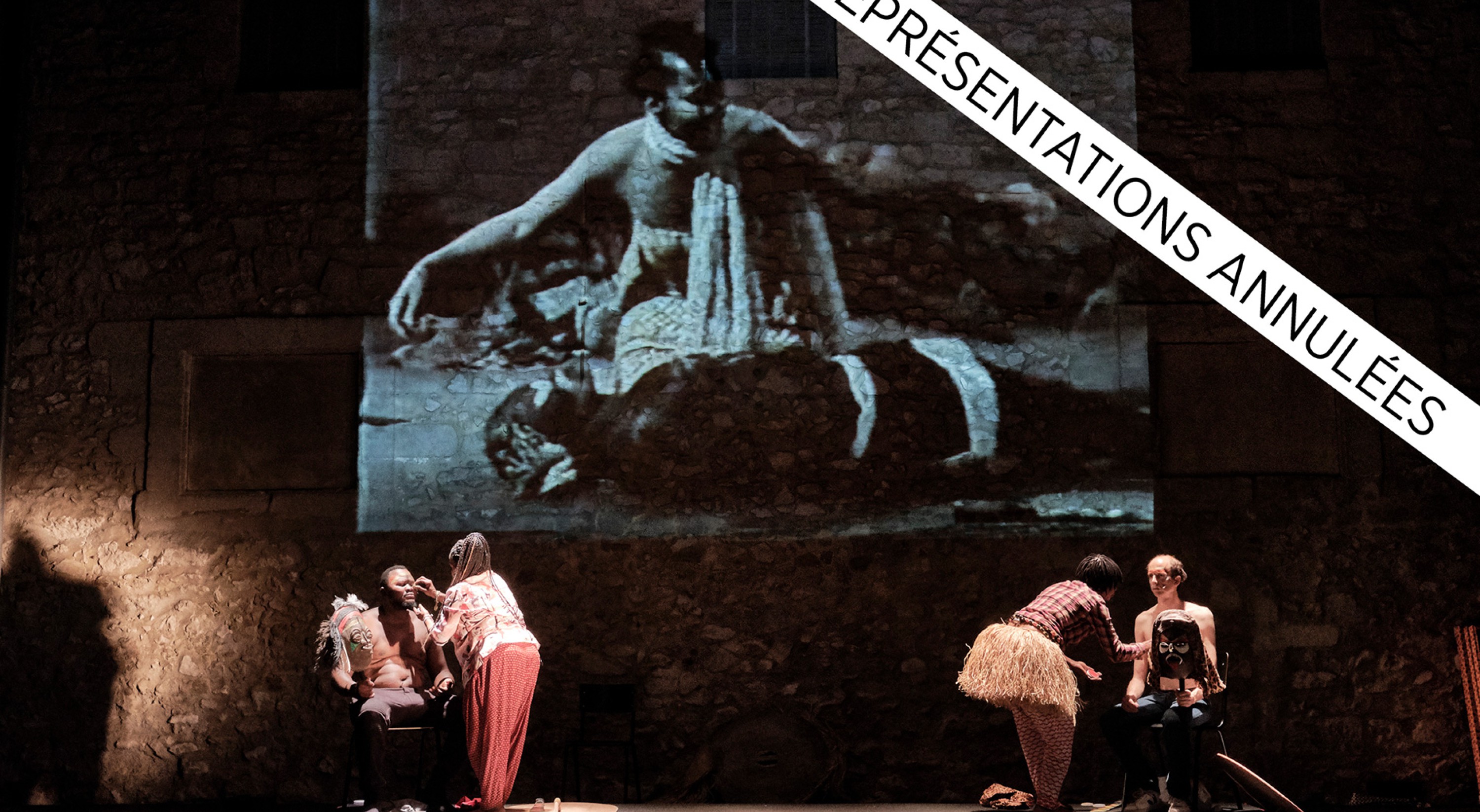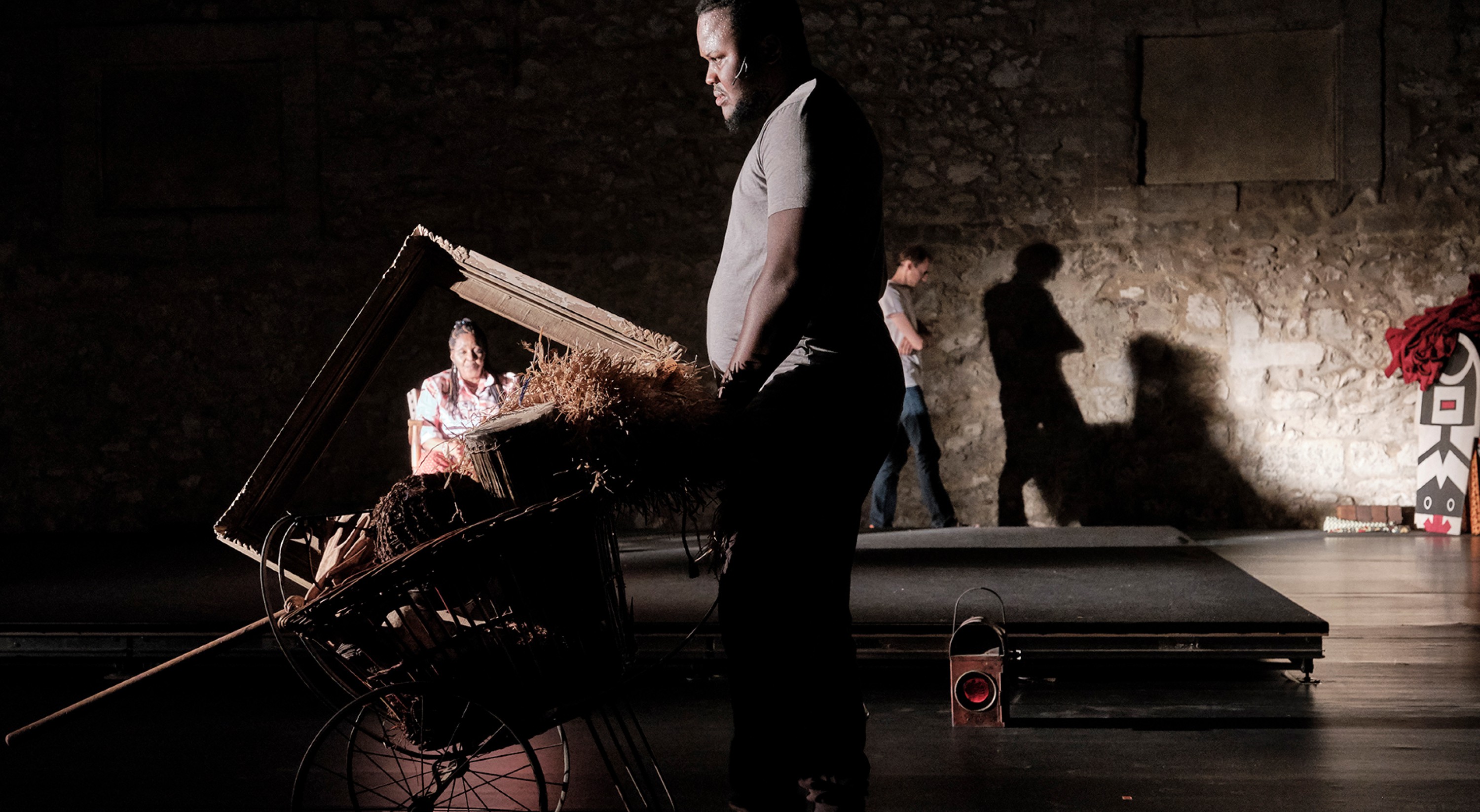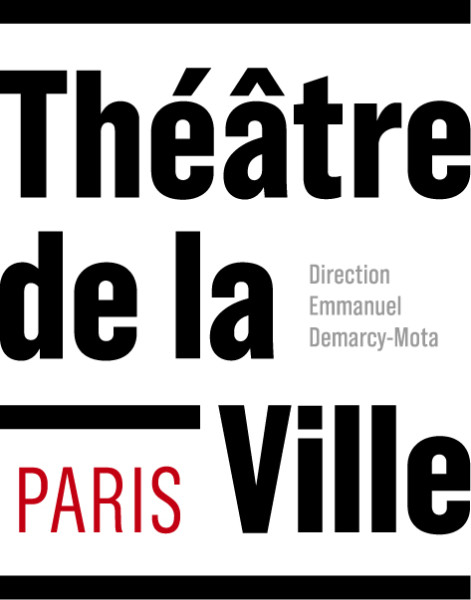Faustin Linyekula
Histoire(s) du Théâtre II
novembernov 18 – 21
Artistic direction, Faustin Linyekula
Dramaturgical assistant and direction, Castélie Yalombo
Assistant director, Papy Maurice Mbwiti
With Wawina Lifeteke, Papy Maurice Mbwiti, Ikondongo Mukoko, Marie-Jeanne Ndjoku Masula, and Oscar Van Rompay
Costumes, Ignace Yenga
External advice, Stefan Bläske
Directorial and dramaturgical apprentice, Castélie Yalombo
Lighting, Geert de Rodder
Sound and video, Frederik Vanslembrouck
Video footage from L’épopée de Lyanja by the Ballet National de la Compagnie Théâtre National Congolais (extracts)
Produced by Virginie Dupray, Greet Prové
Produced by NT Gent ; and Studios Kabako
In association with Théâtre de la Ville-Paris ; and Festival d’Automne à Paris
With support from the Federal government of Belgium’s Tax Shelter scheme
With the collaboration of the Ballet National de la Cie Théâtre National Congolais and Isaano / Positive Production (Kigali)
Partnership with France Culture
First performed on the 18th July 2019 at the Festival d’Avignon
Faustin Linyekula pursues his investigations into the history of theatre, a process set in motion by the Swiss director Milo Rau, by focussing on the creation of the National Ballet of Zaire in 1974. The accounts of three of its performers at the time, still members of the Ballet today, take us back to the dreams and deprivations of a country tormented by history.
For Faustin Linyekula, dance and theatre are inextricably linked to political and social issues, and are a means of passing on the events of our past. Following on from Histoire(s) du Théâtre (1), presented in 2018, in which Milo Rau evoked the birth of a contemporary tragedy, the director and choreographer returns to a founding moment in the history of the stage in the Democratic Republic of Congo. In 1974, a time when the country was still known as Zaire and under Mobuto’s dictatorship, the latter created a national ballet. The extensive broadcasting on the national television channel of the first piece, L’épopée de Lyanja, participated in the construction of an identity-based representation of the Zairean nation. However, what could have been a remarkable means of reflection on the creation of national sentiment rapidly turned into a propaganda tool. Faustin Linyekula, for whom the rebroadcasting on television of this ballet constituted his first experience of the theatre, calls upon three of its performers at the time, still members of the Ballet today, to evoke their memories via a mixture of song, dance and theatre. Their respective paths in life, coupled with various other accounts, provide us with an emotional retelling of the story of a nation of multiple facets, in search of its identity.
See also
In the same place


